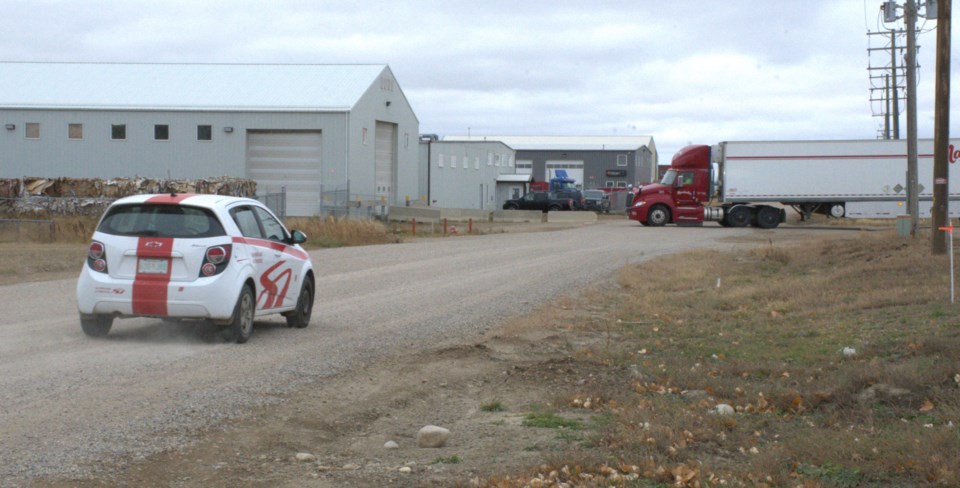MOOSE JAW — Gravel roads can sometimes cause problems for residential and commercial properties, so to address that, city council will consider enhancing those streets in its upcoming budget.
Coun. Crystal Froese introduced a motion during the Oct. 21 regular meeting to have council prioritize increasing funding for gravel road maintenance, repair and dust control and discuss this situation during its 2025 budget discussions.
Her initial motion focused on grid roads, but city administration suggested she change that to gravel to ensure the recommendation included all city streets.
Froese explained that she developed this motion because there are two areas where gravel roads negatively affect people. One location is Stadacona Street West from 16th Avenue Northwest across Thatcher Drive and further west. This is a commercial area dealing with deteriorating road conditions and dust problems.
A second location is Caribou Street East from 11th Avenue Northeast, which runs from residential to commercial properties and finishes at the paved Highway 1.
“Both of these … have inconsistent road conditions and create ongoing challenges for the businesses, residents and the commuters,” said Froese.
“Dust control is also another critical issue. It impacts not just nearby residents, but also employees and customers in these commercial zones,” she continued. “And our poor dust control affects their air quality, working conditions and the customer experience.”
Addressing these roads during the budget process is crucial to ensure that Moose Jaw’s infrastructure encourages residential well-С����Ƶ and supports the growth of businesses, Froese said. While there are dust-control products the municipality can apply, these streets require extra attention.
Froese noted that her short-term goal is to see these roads enhanced, although it is also important to include them in future paving plans, especially Stadacona Street West, which has never been paved west of Thatcher Drive.
She added that some streets off Ninth Avenue С����Ƶwest have been gravel for years, although some area homeowners have rejected having the city pave them since such projects fall under local improvement programs.
Coun. Jamey Logan agreed with the motion because when he sat on the Humane Society board, members complained about how dust negatively affected the animals kept outside. He argued that while that road requires extra attention, the very least the city could do was manage the dust for the animals’ sake.
The condition of gravel roads has been a problem for years, so council should attempt to address this concern in the upcoming budget, said Coun. Dawn Luhning.
Furthermore, she hoped that the new council would give homeowners and business owners the opportunity to participate in local improvement programs to upgrade their gravel roads, while her long-term hope was that the city eliminated all such streets within its boundaries.
Council has received many complaints about various dusty gravel roads, such as the 900 and 1000 blocks of Hochelaga Street East, said Coun. Doug Blanc. He understood that council couldn’t afford to pave all gravel streets but thought it should make them a priority to help the business community.
Once developers finish road projects and return them to the municipality, city hall always wants them to pave those roads as part of the contract, city administration told council. Also, homeowners and businesses adjacent to gravel roads must pursue local improvement programs — a 51-per-cent buy-in is required — if they want those streets converted to paved ones.
“Normally, paving for any area would be part of the initial lot sale price (but) a number of these areas didn’t ever participate in that, so that’s where they become local improvements,” said finance director Brian Acker. “Certainly council in their prerogative could decide, ‘We want to pave this road,’ and pave it.”
Council then voted unanimously to accept the motion.
The inaugural meeting of the new city council is Monday, Nov. 18, while the first regular meeting is Monday, Nov. 25.




